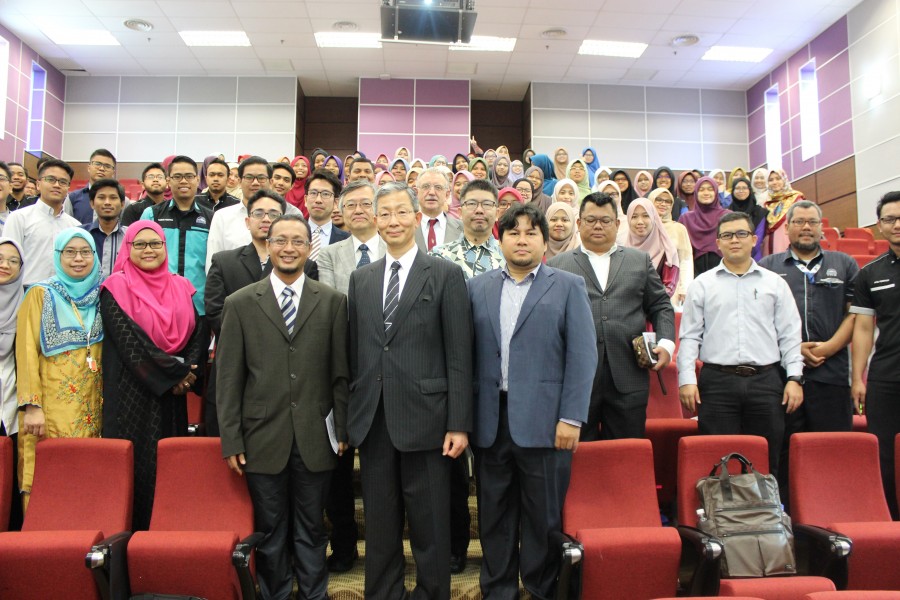NILAI, October 25, 2017 – Three academicians have stressed the importance of having the right approach and preparation to ensure that society will benefit and profit from the rise of Industrial Revolution 4.0.
Universiti Sains Islam Malaysia’s (USIM) Economics and Muamalat Faculty lecturer, Dr Jamal Abdul Nassir Shaari said that technology-based leadership should be grounded in the goals of Islamic teachings to benefit society and prevent society from extinction.
“It can be done if five global sustainability aspects are given attention, namely, religion, life, mind, descendants and property,” he said when tabling a working paper at a conference titled ‘Malaysia-Japan Relations: The Rise of the Industrial Revolution 4.0’ at Universiti Sains Islam Malaysia (USIM) recently.
Higher Education Leadership Academy (AKEPT) deputy director Associate Professor Dr Rushdan Jailani, in his working paper, said leadership based on a clean heart could ensure justice, wisdom, moderation and bravery in the current of technological development in the Industrial Revolution 4.0.
Conference director Dr. Nuradli Ridzwan Shah Mohd Dali, who is also a Islamic Finance and Wealth Management Institute (IFWMI) researcher, and a USIM Economics and Muamalat Faculty lecturer said humans must have creative entrepreneurship skills to stay relevant and could not be replaced with robots.
“In Industrial Revolution 4.0, robotic systems will be able to make decisions via the IOT (Internet Of Things), IOS (Internet of Systems) and biological system combination,” he said.
As such, he said education during the industry revolution required a new method to ensure manpower was skilled.
Dr Nuradli Ridzwan said 10 academic experts, representing Reitaku University and USIM, participated in the conference to discuss the industrial revolution which would change the way of life of society.
The conference was jointly organised by IFWMI, Universiti Sains Islam Malaysia’s (USIM) Economics and Muamalat Faculty and the Mizan Research Centre with Reitaku University of Japan.
Prepared by:
Dr. Nuradli Ridzwan Shah Bin Mohd Dali
Islamic Finance and Wealth Management Institute(IFWMI)
Faculty Of Economics & Muamalat







